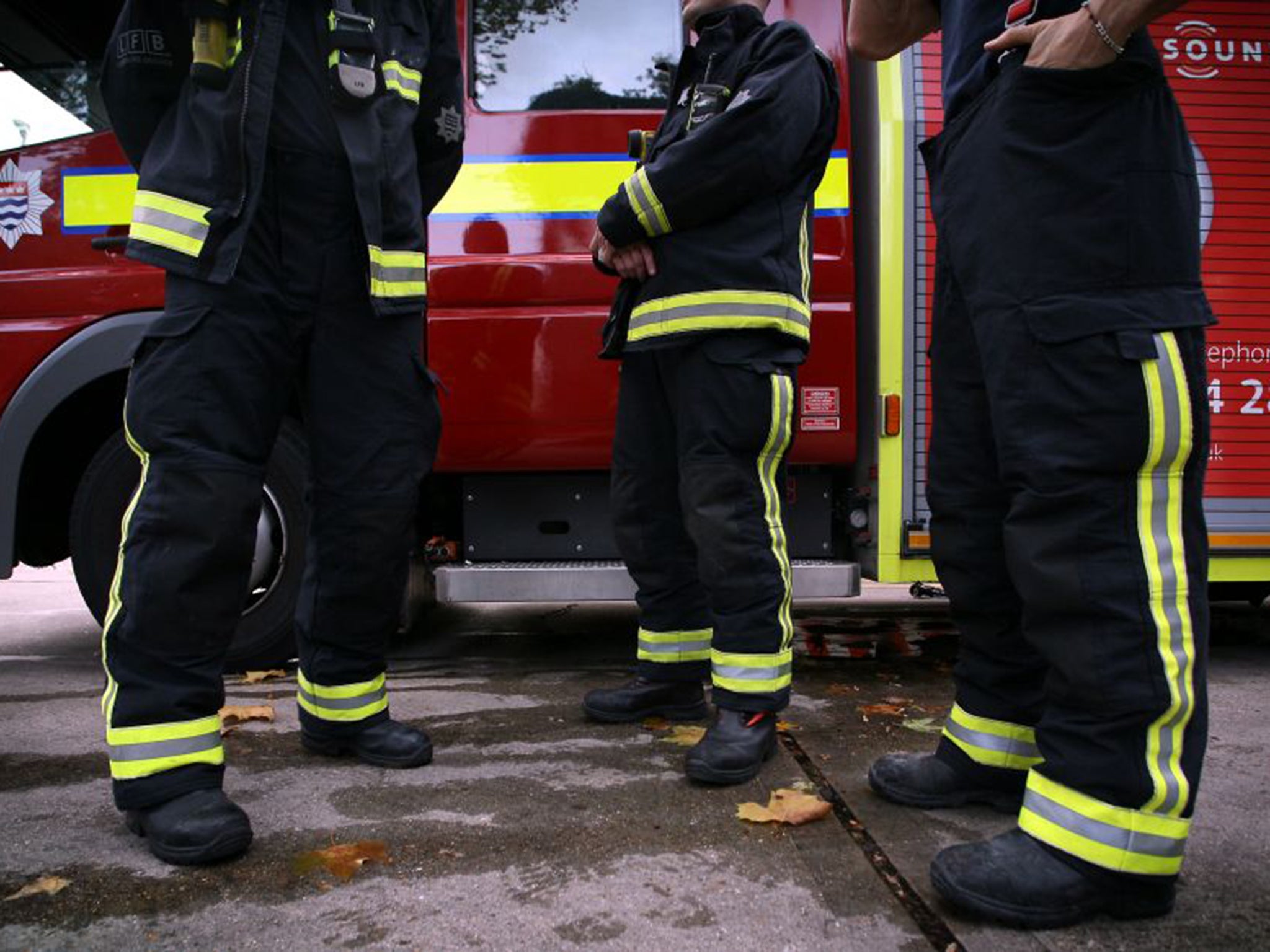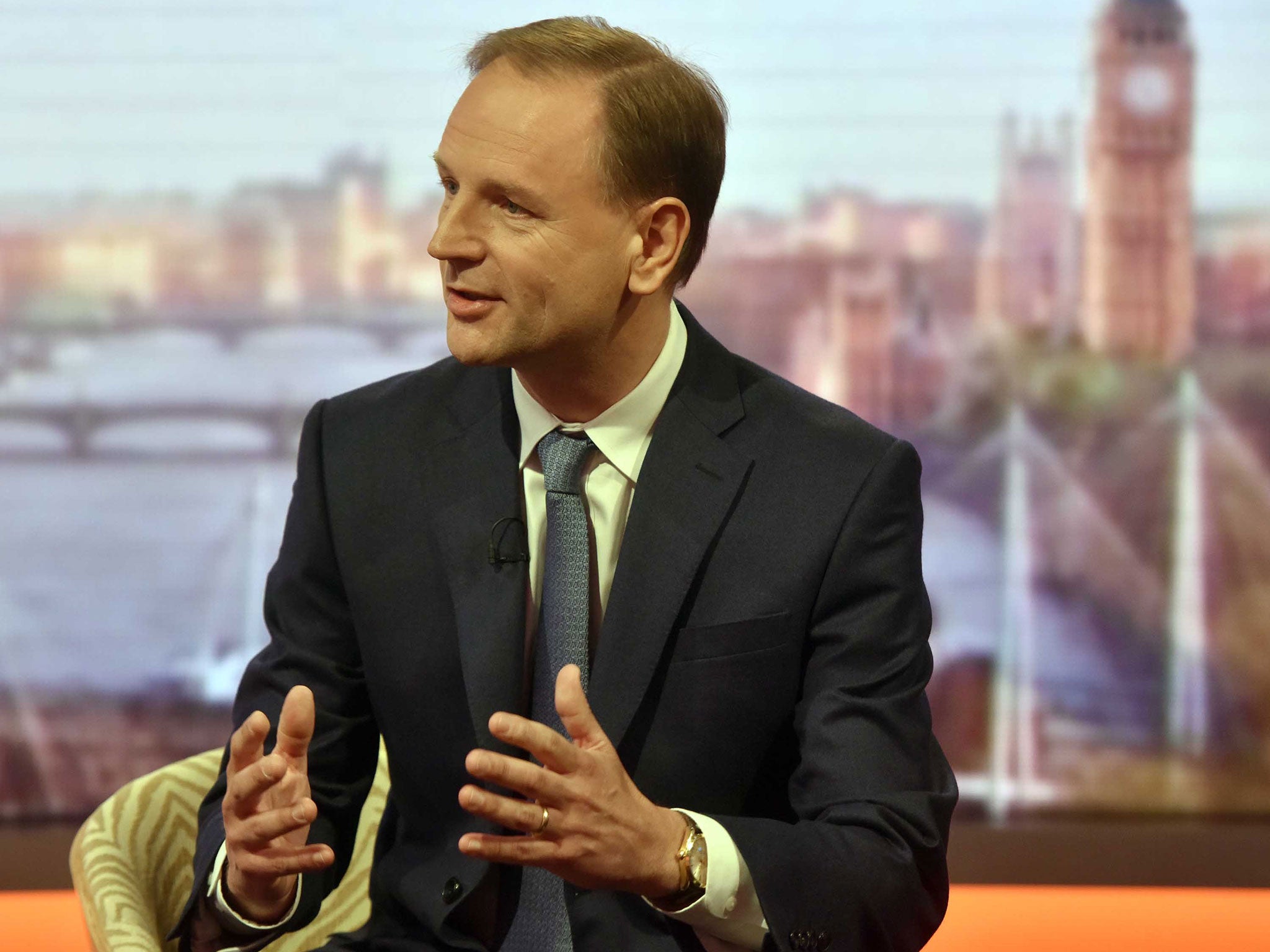Firefighters to ease pressure on NHS by conducting health checks in people's homes
The NHS will 'piggyback' on the 670,000 home visits carried out by the fire service every year

Your support helps us to tell the story
From reproductive rights to climate change to Big Tech, The Independent is on the ground when the story is developing. Whether it's investigating the financials of Elon Musk's pro-Trump PAC or producing our latest documentary, 'The A Word', which shines a light on the American women fighting for reproductive rights, we know how important it is to parse out the facts from the messaging.
At such a critical moment in US history, we need reporters on the ground. Your donation allows us to keep sending journalists to speak to both sides of the story.
The Independent is trusted by Americans across the entire political spectrum. And unlike many other quality news outlets, we choose not to lock Americans out of our reporting and analysis with paywalls. We believe quality journalism should be available to everyone, paid for by those who can afford it.
Your support makes all the difference.Firefighters throughout England are preparing to support the NHS by conducting hundreds of thousands of health checks in people’s homes, under a nationwide plan agreed by fire and health service leaders.
The NHS will “piggyback” on the 670,000 home visits carried out by the fire service every year. As well as checking smoke alarms and fire risks, firefighters will now deal with trip and fall hazards, remind people to get their flu vaccinations and make sure homes are kept warm over the winter.
To support the plan, the NHS has shared a huge dataset with fire services across England, allowing them to identify the most vulnerable people for priority checks.
Pilots of the scheme in Greater Manchester, Staffordshire and Gloucestershire, funded by Public Health England (PHE), will look at whether the visits can bring down the number of A&E admissions – taking pressure off overstretched hospitals this winter – and even reduce the number of winter deaths.
The NHS struggled to cope with increased demand last winter, as many hospitals declared major incidents because of overcrowding and queuing at A&E departments.
Death rates in England and Wales also exceeded the normal increase in mortality seen over winter, with as many as a third more deaths over two weeks in January compared with previous years.
But while the NHS and social care services increasingly struggle to cope with ever-growing demand from an ageing population, the fire services have seen the number of emergency call-outs halved in the past 10 years. Much of that decrease has been achieved through prevention work – including home fire- safety visits.
Simon Stevens, chief executive of NHS England, met Peter Dartford, president of the Chief Fire Officers Association (CFOA) in January to discuss how fire and rescue services could work with the NHS.
Building on the experience of a handful of local fire services that are already performing enhanced home safety checks and referring vulnerable people to local support services, the NHS, the CFOA, PHE, and the Local Government Association last week agreed a consensus statement which will act as a blueprint for fire services across England to expand their significantly support for the NHS and care services.
Mr Stevens told The Independent on Sunday: “The NHS has a golden opportunity to piggyback off the fire service’s vital 670,000 home-safety visits, to help prevent falls, broken hips and hospital admissions. This is precisely the kind of joint working between local public services that makes sense for patients and saves money for taxpayers.”
It is hoped that the fire service “brand” and the trust invested in firefighters will allow health messages to get through to people in a way that would not be possible if delivered by a social worker or care staff.
New “safe and well” checks could even involve firefighters discussing health matters such as weight, smoking and mental well-being with people, while they will also seek to refer people to appropriate local support for issues such as unemployment, claiming benefits, and drug and alcohol schemes.

Another set of pilots will involve fire services working hand in hand with local Age UK branches to support elderly people.
“We get across the threshold because the fire service is seen as non-threatening and trusted,” said Mr Dartford. “We then engage with the householder do a much broader range of assessments and refer on to Age UK to provide the services it can, such as benefits maximisation and long-term support.”
Pete Wilson, head of community safety at West Midlands Fire Service, which has pioneered the approach and received praise from leading health experts, said that the success of a prevention strategy in reducing the number of fires could be applied to the field of health.
“Prevention has been a success. We reckon about 40 per cent of a firefighter’s time is taken up in prevention activities these days – that’s quite a large resource that is allocated to this kind of work,” he said.
“Firefighters have evolved over a number of years to make this key part of their work. Part of our ‘safe and well’ check will include checking there is adequate heating, adequate insulation and then referring people to their housing provider or local schemes to ensure they are claiming and in receipt of the benefits to which they are entitled to ensure they are safe and warm during the winter. That seems entirely sensible to us.”
Join our commenting forum
Join thought-provoking conversations, follow other Independent readers and see their replies
Comments